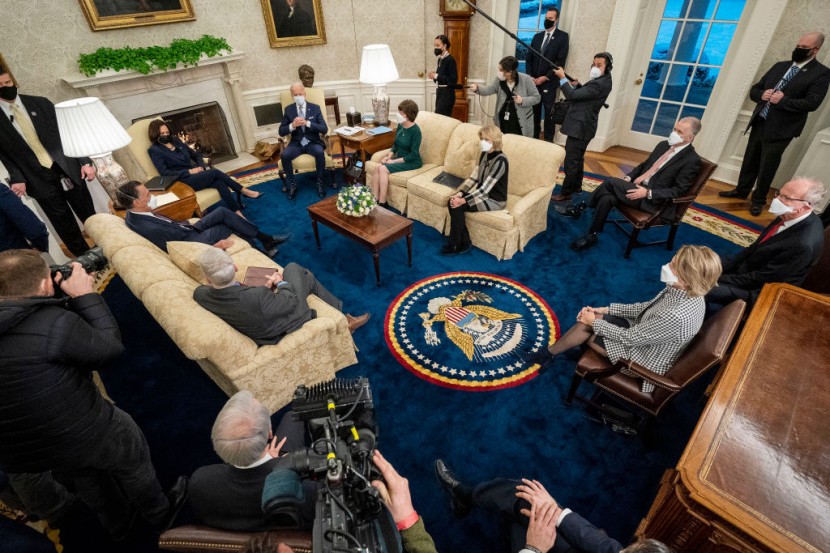A $1.9 trillion COVID-19 relief plan from President Joe Biden will provide millions of Americans with the third round of federal stimulus checks. However, while politicians have voiced enthusiasm for the plan from both sides of the aisle, there is less consensus about who should be eligible for cash payments of $1,400.
Americans worry they might not qualify for $1,400 stimulus checks

Congressional Democrats are going forward with a process called budget reconciliation with the passage of Biden's relief bill, which will allow the Senate to pass the effort without any Republican support. As the process goes forward, before setting up and deciding on bills, House and Senate committees will discuss budget priorities. This is expected to happen later this week, as per economists at Goldman Sachs.
On February 4, the Senate approved a compromised bill proposed by Democratic Senator Joe Manchin and Republican Senator Susan Collins to eliminate "upper-income citizens" from the next round of stimulus checks. "However, the proposal notably does not describe "upper income." The measure would guarantee that Collins said in a statement, "the struggling households who need it most" would receive the checks.
According to CBS News via MSN, the amendment adds that the "uncertainty if all the Senate Democrats will support President Joe Biden's full plan. Meanwhile, Joe Manchin already expressing doubts on the need to send $1,400 stimulus checks to those who might not need the money," said Paul Ashworth, chief U.S. economist at Capital Economics, in a research note to investors.
Read also: Third Round of Stimulus Checks Can be as Much as $5,600 to Families of Four
Why are income limits matters?
The first two federal stimulus checks, $1,200 for the first round and $600 for the second round, set revenue limits that make the payments unavailable for higher-income households. Individual people who earned up to $75,000 and married couples who earned up to $150,000, received the prior rounds of full stimulus payments.
As their wages increased, individuals with higher salaries earned fewer payouts before the checks were fully closed for higher-income households. In the first round, the phaseout peaked at $99,000 for individual persons and $198,000 for married couples.
The phaseout was marginally smaller in the second round: $87,000 per single person and $174,000 a year per married couple. However, that resulted from smaller size of the stimulus checks, provided that for every $100 received over the tax limits for complete compensation, the law lowered all checks by 5%.
The latest economic research suggests that for many lower- and higher-income households, finances have stabilized. It sparked discussion among lawmakers and experts if direct assistance should be aimed at families with lower incomes that are more likely to experience the COVID-19 pandemic's continuing economic effects.
Read also: IRS Could Start Sending Out the Third Stimulus Checks as Early as First Week of March
According to research from the Opportunity Insights Economic Tracker, a non-profit organization headed by Harvard economics professor Raj Chetty, households earning less than $78,000 annually, spent their second stimulus checks easily after receiving them in January. While those with incomes above that amount consumed much of the revenue.
Today, with the announcement that Congress is considering lowering the salary eligibility requirement from $75,000 to $50,000 for people and $150,000 for married couples to $100,000 for the third round of stimulus funds, Marie's financial worries are rising.
Marie, who wanted to be known by her middle name to protect her identity, is "terrified" that she would no longer qualify since she made around $60,000 in 2019. She is one of the hundreds of individuals who reached out to CNBC Make It to voice concern over the upcoming adjustment to the $1,400 stimulus payment qualifications. Some, including Marie, claim that Democrats would renege on their campaign promise to give $2,000 in direct aid payments to poor Americans if they sent them to fewer people.
According to Washington Post, household heads making up to $75,000 will also count under the revised requirements for the full $1,400 payments.
© 2026 HNGN, All rights reserved. Do not reproduce without permission.








